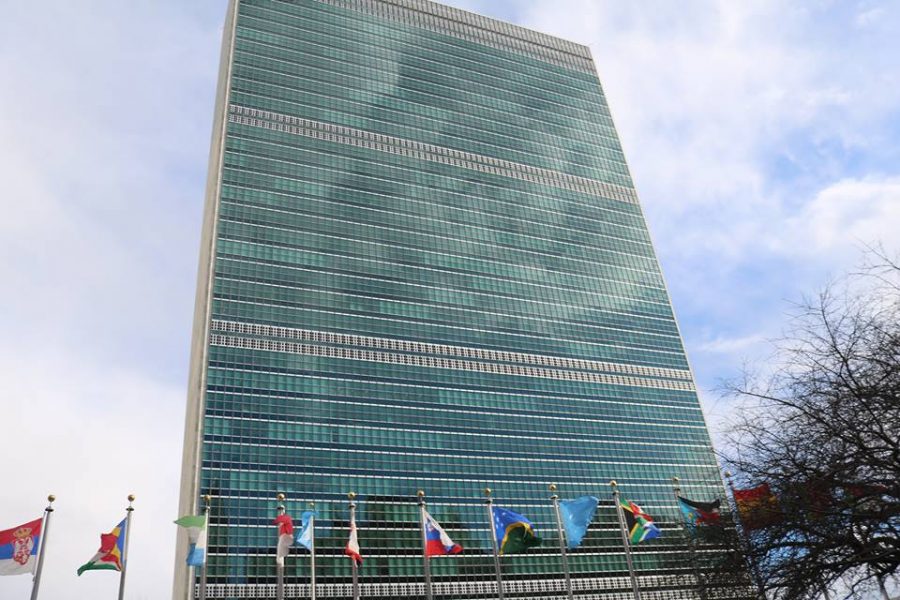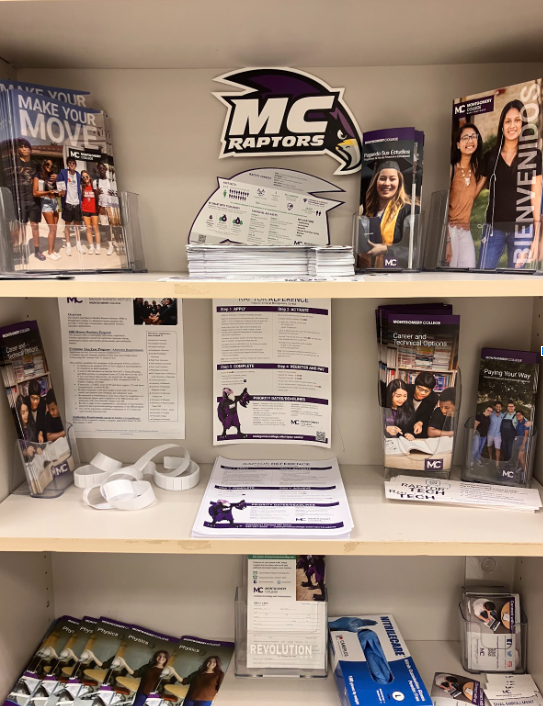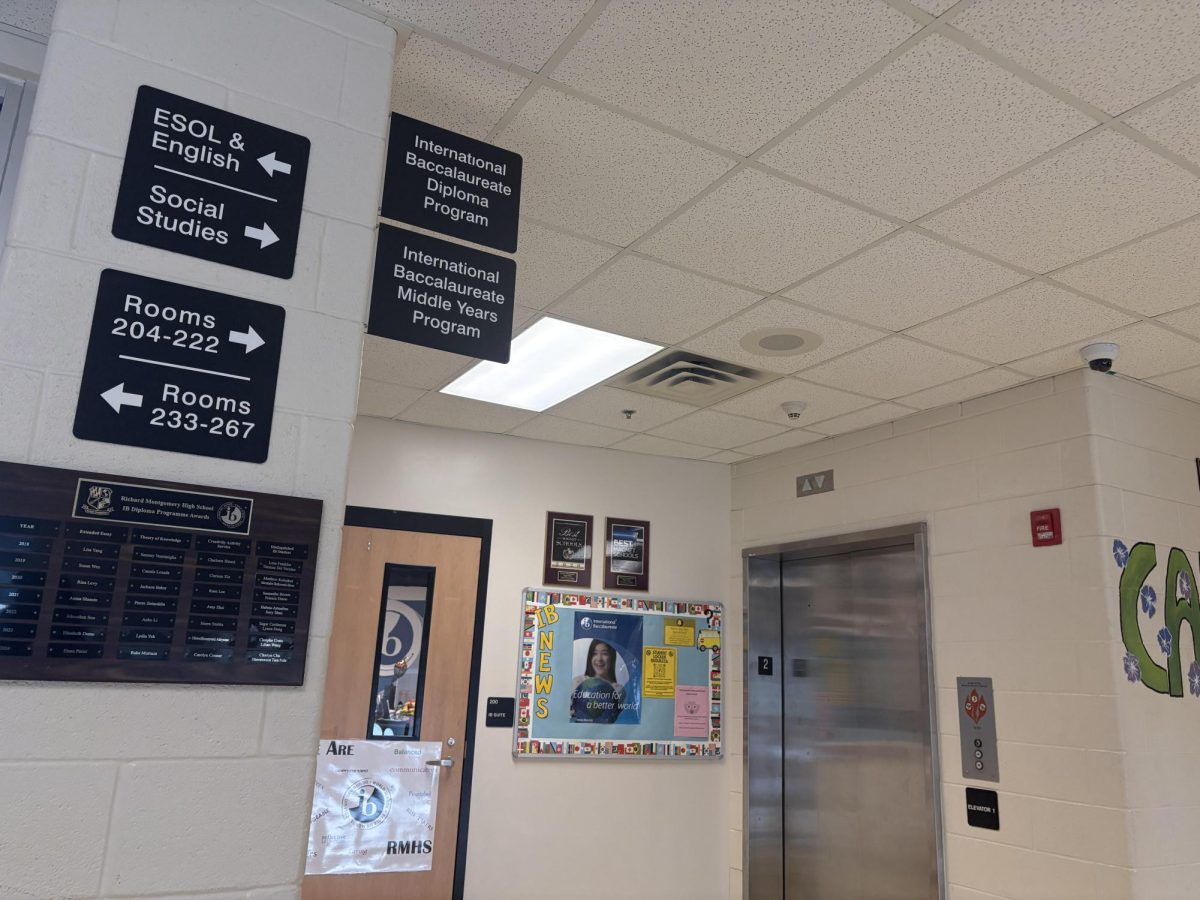It is March 2, 2017. I walk through a revolving door and am greeted by a security officer in a light blue uniform. I present to him a small piece of card stock bearing my name and a label highlighted in green: GA Hall. Seeing this, he lets me pass. I climb up a flight of aesthetically pleasing but rather inconvenient stairs and enter the United Nations General Assembly Hall. I sit behind my assigned desk. The digital placard in front of me illuminates my assigned country, Malawi, and the conference begins.
Earlier this month, around a dozen Richard Montgomery International Baccalaureate students, including myself, traveled to the United Nations Headquarters in New York City to attend the UNIS-UN conference, an annual, two-day event during which students from across the world discuss an issue of global significance. This year, the official theme was “Migration: Crossing the Line.” The discussion focused on why people leave their countries of origin and how receiving countries should react to influxes in immigration.
Over the course of two days, we heard six expert speakers: the director of a youth immigrant empowerment non-profit, two university professors, a journalist who covered the refugee crisis, a student who crossed the border as a child, and a representative of the Secretary-General. They brought both economic and humanitarian perspectives to the discussion. After these speeches, the agenda called for open-floor debates. Most students built their arguments in general ideological terms, using personal anecdotes or legal principles in their brief statements. Additionally, there were also some speakers who disdainfully brought up Donald Trump’s travel bans and Brexit.
For the most part, the attendees, regardless of origin, favored more open immigration policies and I began to wonder why. I went to this conference with the expectation of being exposed to new perspectives, of seeing what people in Europe, Asia and South America thought, what their experiences have been with this politically charged issue—and I did. However, it was not in the manner I expected.
The international students emphasized understanding the plights of immigrants as well as the benefits of immigration for host countries. They recognized the risks of immigration, but emphasized that the risks were worth it. And I completely agree with them.
Besides immigration policy, however, I feel that there is a more important message here regarding the global engagement of people our age. The political voice of youth is often dismissed by simple virtue of age. But from my experience at the United Nations, I would argue that such voices are an essential and valid aspect of political discourse across the world.
Most people I know have been raised to value inclusiveness and to respect those who are different from ourselves, be it by country of origin, religion, or gender. As teenagers, we have the capacity to form well-based political opinions while still holding close ties to that upbringing, those values. There is no reason that our opinions should be invalidated as soon as we try to apply them to political or global issues.
Now, this is not to say that the political perspectives of young people are homogenized. Obviously, students across the world fall at every point on the political spectrum. The point is that all these voices have a place in the discussions we have as a society and that to disregard such voices is to ignore a major block of informed perspectives, limiting the complexity with which we view issues like immigration.
One of the greatest benefits to the United Nations is that it brings 193 different cultural perspectives to every discussion. Each perspective offers new insights to the world we live in that we would not have otherwise. Even if all 193 members vote affirmative on a resolution, they voted that way for 193 distinct reasons. For the same reason the U.N. recognizes the opinions all countries, regardless of size, history, or military prowess, we must recognize the youth voice and diversify the perspectives of our political discourse.
*UNIS stands for the United Nations International School. A few blocks south of the Headquarters, UNIS is often attended by the children of dignitaries, taking advantage of the internationally standardized curriculum. They hosted the conference in conjunction with the UN. Video from the debates can be found here: http://webtv.un.org/meetings-events/watch/migration-crossing-the-lines-41st-annual-unis-un-conference-part-1/5345347990001. More information regarding the conference can be found here: http://www.unis-un.org/








